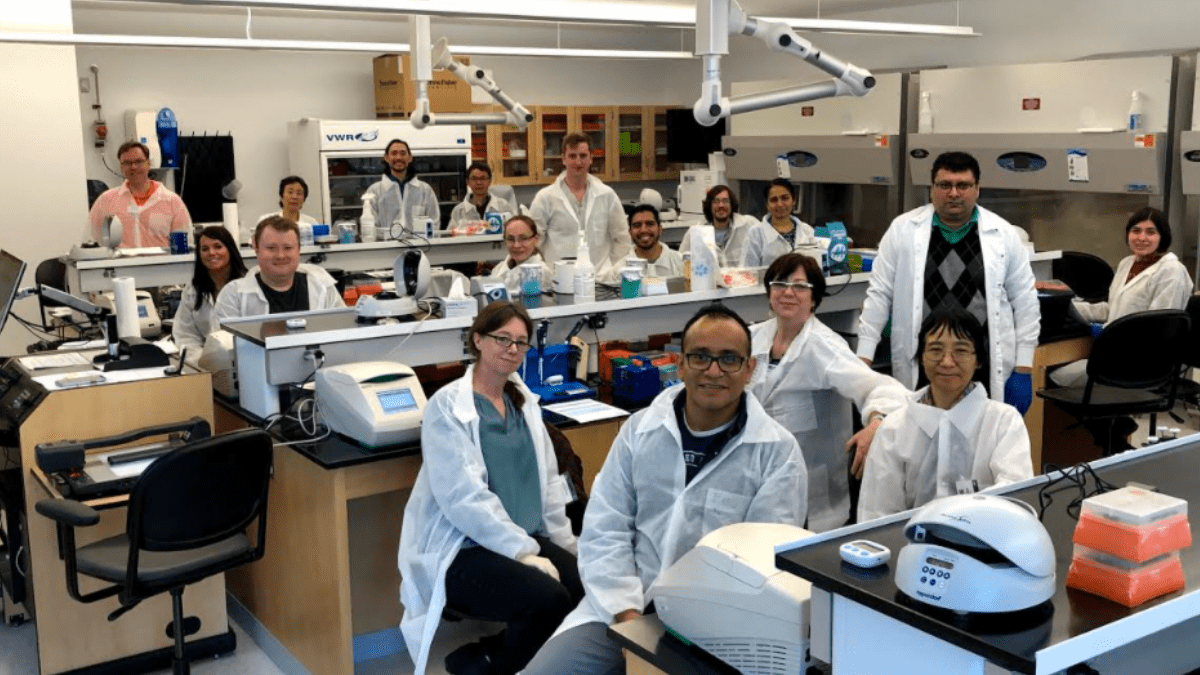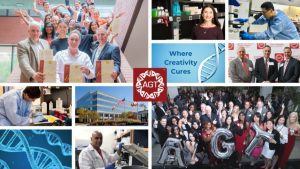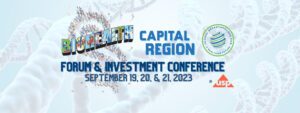
Montgomery College’s Bio-Trac Biotechnology Program Offering Rigorous Life Science Professional Development Lineup this Spring and Fall
Bio-TracⓇ is a leading biotechnology-focused professional development and workforce training program located at Montgomery College’s Bioscience Education Center (BEC). The program nurtures and supports the BioHealth Capital Region (BHCR) talent pipeline as well as national and international academic, government, and private research institutions.
Established at the NIH in 1985, Bio-Trac has trained over 17,500 research scientists in its history and offers powerful and insightful workshops for post-graduate professionals.
Because of COVID-19, Bio-Trac has moved to a live, virtual workshop format. However, any participant that attends a remote workshop can come back for in-person training for free once pandemic restrictions allow for onsite instruction.
This spring and fall Bio-Trac is offering a robust lineup of live, virtual workshops on leading-edge research topics. (See upcoming workshop details below.)
All of Bio-Trac’s workshops are synchronous or live and provide an interactive experience with real-world, pragmatic applications. These workshops are led by research experts and are taught by professionals that are active within their respective fields, ensuring a rewarding professional development experience for all in attendance.
Sheila Bandyopadhyay of Rutgers University attended Bio-Trac’s Single Cell RNA-Seq workshop in 2020 and had this to say about the virtual workshop: “It was a great learning experience with exposure to all the different aspects of scRNA-seq. Informative and helpful for beginners as well as intermediate-learners of this subject.”
“The workshop was excellent as an introduction into the exosomes field. The new concepts and protocols were presented in a very logical and straightforward way by great scientists with a lot of experience in the field. The workshop was very engaging and interactive. I will definitely use in my future projects a lot of information learned during the workshop,” shared Cristina Munteanu, PhD from Oklahoma State University’s College of Veterinary Medicine, who attended the Exosomes: Principles, Methods and Applications virtual workshop in 2020.
Eduardo Callegari, PhD, Proteomics Facility at the University of South Dakota School of Medicine added, “A great training for a great tool. Super useful even for somebody who hasn’t minimal knowledge about R.” Callegari attended a virtual R is for Research Scientists last year.
Bio-Trac, in partnership with Montgomery College and a host of other collaborators, continues to offer graduate and post-graduates best-in-class professional development opportunities taught by actively engaged, highly-respected research scientists.
Single-Cell RNA-Seq
| What: | 4-Day Live, Virtual Workshop |
| When: | March 22-25 from 9-5 pm |
| Course Co-Directors: | Michael Kelly, PhD, NIH/NCI, Director, Single Cell Core Sijung Jun, PhD, CEO of Yotta Biomed, LLC; |
Course Overview:
Bio-Trac’s Single Cell RNA-Seq is a live, remote workshop. This in-depth lecture, laboratory demonstration, protocol review, in silico exercises and discussion is ideal for research and bench scientists who want to gain a deeper understanding of single-cell RNA-Seq. This workshop highlights key aspects of NSG and RNA-seq methodologies, with an introduction into the modern armamentarium of tools to conduct these experiments. Other topics included in this workshop are sample preparation, quality control validation and enrichment, as well as extensive use of different single-cell RNA-Seq data analysis tools (Seurat, Monocle, Pseudo-time Analysis, Clustering Analysis in-depth: t-SNE and Principal Component Analysis).
New Offering: Python for Research Scientists
| What: | 3-Day Live, Virtual Workshop |
| When: | April 28-30 from 9-5 pm |
| Course Director: | Kevin McPherson |
Course Overview:
This live, remote two-day lecture and hands-on computer-based laboratory workshop is designed to introduce bench scientists to Python. The workshop will focus on learning Python around various genomic, bioinformatic, and algorithmic problems.
Antibody Validation and Characterization
| What: | 2-Day Live, Virtual Workshop |
| When: | May 17-18 from 9-5 pm |
| Course Director: | Wolfgang Leitner, PhD, Chief, Innate Immunity Sector, National Institute of Allergy and Infectious Diseases (NIAID) |
Course Overview:
This two-day live, remote program is ideal for basic research and translational biology scientists who work with antibodies regularly. This program focuses on artifact types that are associated with antibodies. Course participants will be introduced to a variety of research and academic validation methods.
Antibodies, and in particular monoclonal antibodies, are the single most important laboratory reagent but are now also recognized as a main contributor to the reproducibility crisis that wastes research funding, undermines trust in scientific research, and jeopardizes scientific careers. This workshop brings to the participants’ attention to the various factors that can compromise the validity of data produced with antibodies.
R for Research Scientists
| What: | 2-Day Live, Virtual Workshop |
| When: | May 25-26 from 9-5 pm |
| Course Director: | Sijung Jun, PhD, CEO of Yotta Biomed, LLC |
Course Overview:
‘R’ is a popular statistics software program used widely in various research fields. This live, remote two-day lecture and hands-on computer-based laboratory workshop is designed to introduce bench scientists to R programming. The workshop will also teach participants how to best use the different tools available for scientific data analysis. Hands-on topics will include data types; import/export data; “Manipulation of Tabular Data”, basic statistics, and visualization using R.
Gene Editing with CRISPR
| What: | 3-Day Live, Virtual Workshop |
| When: | June 9-11 from 9-5 pm |
| Course Director: | Serguei Kozlov, PhD, MBA, PM Team Leader, Principal Scientist and Program Manager, Center for Advanced Preclinical Research, Leidos Biomedical Research, Inc. |
Course Overview:
This rigorous three-day program is ideal for basic research and translational biology scientists who are looking for a balanced theoretical and laboratory introduction to the CRISPR toolkit.
This workshop features several cutting-edge presentations delivered by active experts in the CRISPR/Cas9 field along with an intensive laboratory demonstration schedule, protocol reviews, and ample opportunities for interaction and discussion. This program focuses on CRISPR principles, strategies for successful project design, available expertise, and resources, as well as a wealth of CRISPR technology diverse applications.
- About the Author
- Latest Posts
Steve brings nearly twenty years of experience in marketing and content creation to the WorkForce Genetics team. He loves writing engaging content and working with partners, companies, and individuals to share their unique stories and showcase their work. Steve holds a BA in English from Providence College and an MA in American Literature from Montclair State University. He lives in Frederick, Maryland with his wife, two sons, and the family dog.





